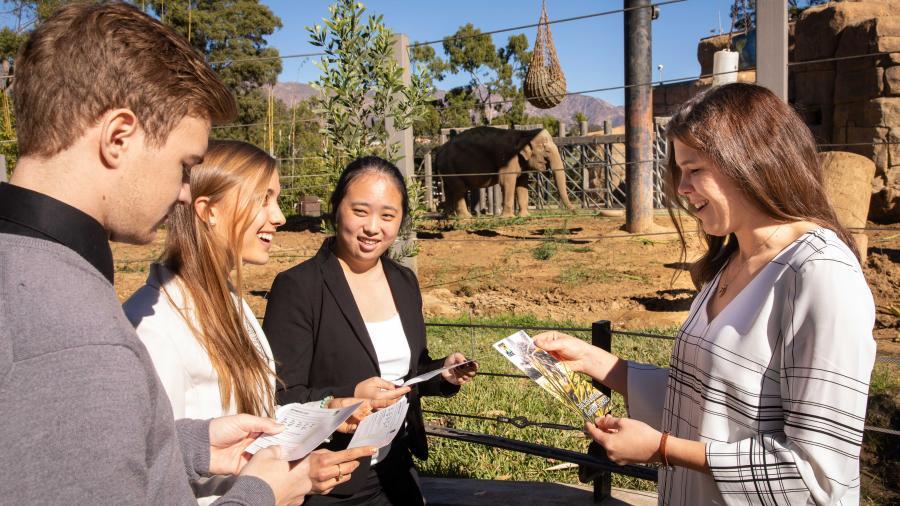Westmont Decision Lab Helps Zoo Plan for the Future

Professor Enrico Manlapig and his students in Westmont’s Applied Management Science (AMS) course offer their expertise in analytic decision-making to the local community. Last fall, they acted as the Westmont Decision Lab and assisted the Santa Barbara Zoo in making some decisions about its future.
“At first, the zoo’s path seemed ambiguous and overwhelming, but by applying the material from this course, the decision and the strategy became clear,” says Manlapig, assistant professor of economics and business. “I’m not saying that decision analysis can make difficult decisions easy; nothing can do that. Hard decisions are hard, but the process can help make difficult choices clear.”
Decision analysis features a set of frameworks, tools and methodologies for making tough decisions, drawing upon ideas and techniques from economics, applied mathematics, behavioral economics and finance. “It’s a surprisingly little-known field, although its core principles are universal,” Manlapig says. “I use decision analysis for personal decisions, too, and encourage students to do the same.”
In addition to mastering the course content, the 27 students learned about strategic consulting. Thinking like a CEO required them to ignore details while practicing rigorous, critical thinking. “It’s a tricky balance forcing yourself to be critical while ignoring details,” Manlapig says.
Students participated in every part of the project from framing to analysis and final presentation. To model the zoo’s values, they interviewed the chief operating officer, scoured websites, public financials and news clippings, and posed several rounds of questions to leaders throughout the zoo. They conducted a survey to understand how the zoo’s values related to each other to help decision makers make difficult trade-offs.
“The project was challenging because of the many alternatives available to them,” Manlapig says. “Should they build new features? Focus more on education? Grow food for the animals? The space was really wide open.”
Students focused on mapping the alternatives, analyzing other zoos, theme parks, schools and universities from around the world. They built a set of stylized models to articulate key features, risks, and how each alternative advanced the zoo’s values.
At the end of the semester, students presented their findings to a group of zoo staff and leadership at the zoo.
“We loved working for the zoo,” Manlapig says. “We’re not only interested in big flashy decisions, though. There are so many non-profits in Santa Barbara that could benefit from structured decision support. We love helping churches think through missions giving, schools navigate changing demographics, non-profits serve the homeless, and high-schoolers thinking about college.”
Last summer, the Westmont Decision Lab, through Westmont in San Francisco, completed a project related to affordable housing in the Bay Area.
The city of Santa Barbara faces large, important decisions where decision analysis may help. “Water management, disaster response, affordable housing, climate change response, and various revitalization projects, are all prime candidates for decision analysis,” Manlapig says. “If leaders are open to new ways of thinking about their decision-making, we’d love to help.”
Does your organization need help making a strategic decision? Contact emanlapig@westmont.edu
